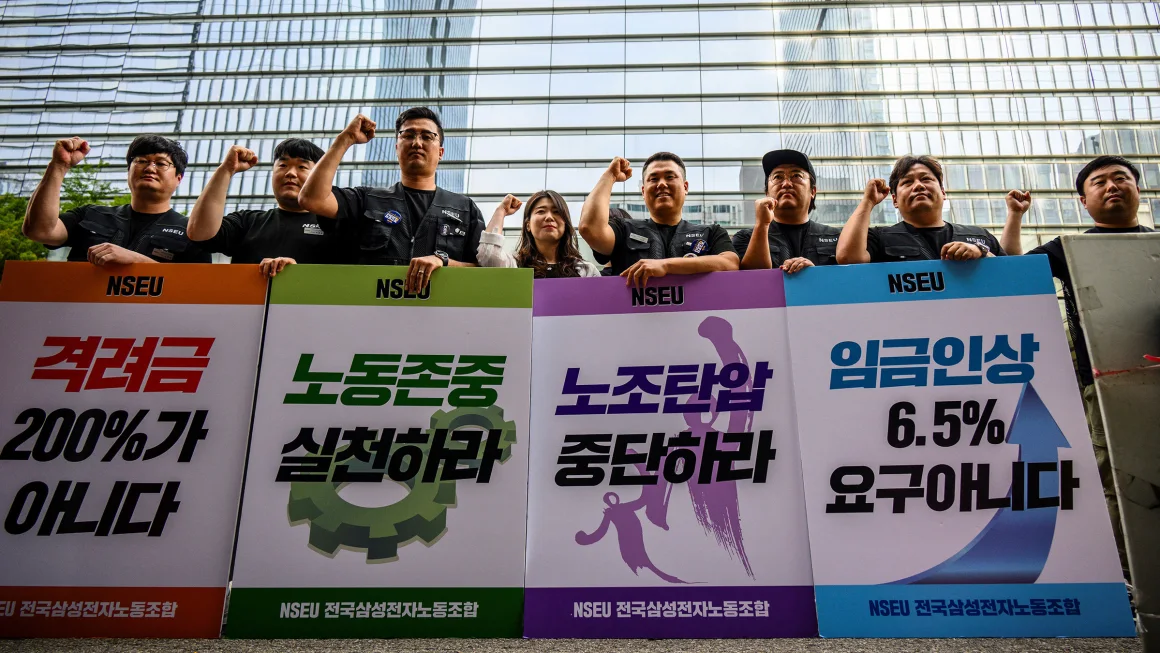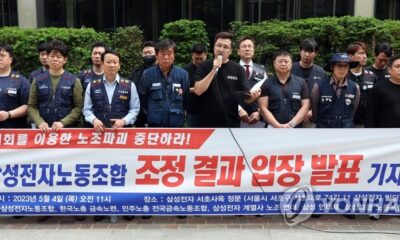Technology
Samsung Electronics faces first-ever strike in 55-year history

For the first time in its 55-year history, Samsung Electronics faced a labour strike as tens of thousands of workers in South Korea walked out on Friday.
The Nationwide Samsung Electronics Union (NSEU), representing 28,000 members—nearly a quarter of the company’s domestic workforce—initiated the strike after unsuccessful negotiations over pay and bonus arrangements.
The union had previously announced plans for the strike, urging its members to take a day off on June 7, which fell between a public holiday and the weekend.
Union leader Son Woomok told CNN that many employees used their annual leave, with some sites deploying replacement personnel due to the high number of workers on leave.
A Samsung spokesperson stated that the strike did not impact production or management activities, noting that the use of annual leave was lower compared to last year’s Memorial Day holiday.
The strike predominantly affected employees in Samsung’s semiconductor unit, which is currently striving to regain its position as a leader in the industry.
Samsung has recently been lagging behind competitors such as SK Hynix and Micron Technology in the AI processor chip market.
Despite the challenges posed by the strike, Samsung remains optimistic about future demand, particularly due to the surge in AI technology.
The company anticipates increased demand for mobile devices, including AI-powered smartphones, following a more than tenfold rise in first-quarter operating profit last month.
As the world’s largest memory chipmaker, Samsung has faced a tumultuous few years.
The COVID-19 pandemic led to a historic shortage of computer chips, and last year’s weak consumer demand for electronics added to the company’s struggles.
However, the ongoing AI boom presents a promising outlook for the tech giant.
The vast majority of advanced microchips are produced in Taiwan and South Korea, with Taiwan’s industry currently leading.
South Korea, however, aims to challenge this dominance as it continues to bolster its semiconductor sector.

























